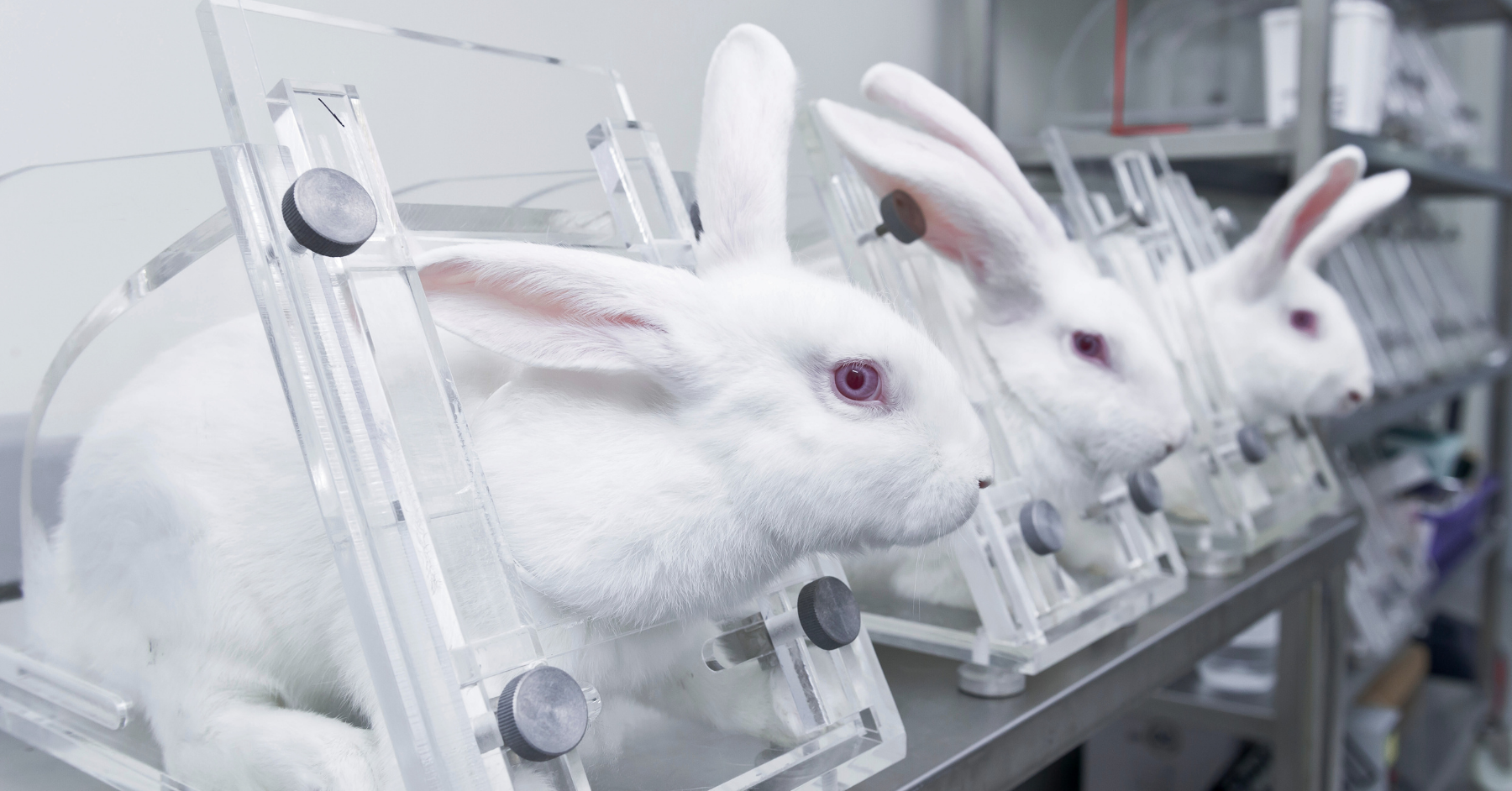
Earlier this week, we considered the U.S. Environmental Protection Agency’s about-face with regard to phasing out other-than-human animal testing. Then, on Wednesday, we attended a presentation by former animal researcher Dr. Charu Chandrasekera about the push to use non-animal, human-relevant methods for toxicology testing in Canada, the government of which is now promising to phase out toxicological animal testing by 2035 (the same year by which the EPA was previously supposed to phase out such testing).
As one primary type of animal research, toxicology testing – also known as regulatory or chemical safety testing – seeks to identify the effects that consumer and industrial chemicals have on human health.
To do this, humans often rely on “descriptive whole animal studies”, forcing other-than-human animals to ingest, inhale, or absorb (through their skin and/or eyes) chemical compounds and. then, monitoring the consequences. The doses forced into and onto the test subjects are typically 100 to 1,000 times greater than the doses humans are expected to encounter, and the experiments can endure anywhere from less than 30 days to multiple years. Mice and rats are the most typical victims of toxicological testing – with dogs (specifically, beagles) taking up the lead for non-rodent mammals – and do not receive any pain relief even though, as Dr. Chandrasekera notes, the tests push their victims beyond their “pain tolerance threshold[s]”.
One famous example of this practice is the “Lethal Dose 50” or “LD50” test, in which animals are exposed to increasing levels of a chemical until half of them die. This test – which has been called into scientific question since at least the middle of the twentieth century and has been described by a toxicologist himself as a “‘ritual mass execution of animals’” – continues to be used today in the name of “science” in both the U.S. and Canada.
Toxicology testing on other-than-human animals cannot be justified even on the basis of its very own principles.
Animal toxicology testing is premised on the principles that its results are applicable to and necessary for human health – but the practice patently fails on both counts.
Per Dr. Chandrasekera, the odds that these tests’ results are predictive of human response is often no better than a coin flip and – harkening back to the Tox21 findings we discussed in connection with the EPA – their attainment is wholly impractical. Dr. Chandrasekera estimated that the vast majority of the 350,000 consumer and industrial chemicals in use worldwide have not been subjected to animal toxicology testing, and that to pursue this testing using other-than-human animals would “take centuries” and “trillions of dollars”.
Both the ethical and practical answer lies in replacing other-than-human animal toxicity tests with non-animal, human-relevant tests, and Dr. Chandrasekera is working to do just that.

In its pursuit of ethical science for the good of all animals – at home and abroad – Rise for Animals is proud to support CCAAM and joins in its vision of a world without animal testing.
Share This Article on Facebook
Share This Article on X (Twitter)
Are you looking for ways to help usher in the future of biomedical research that’s better for both people and animals? Sign up for emails below to stay connected. We’ll send you all the latest news, insights, and actions you can take to help end animal experimentation in our lifetime.